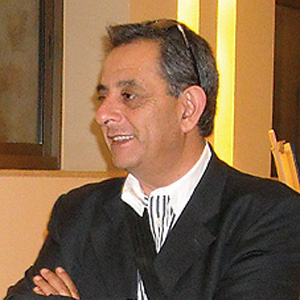Does It Matter Whether Culture Is a Tool of Resistance?
Although heavily involved in cultural projects, he is, in fact, the main inspiration and driving force behind the largest cultural edifice in Palestine: The Palestinian Museum. Omar Al-Qattan essentially does not think that culture is a tool of resistance. He cautions us to be modest and not make culture more important than it actually is. Naturally, Al-Qattan has his own views on how best to resist, which you can read in the October 2017 issue of This Week in Palestine. On the other hand, our Minister of Culture, H.E. Ehab Bessaiso, believes that culture is indeed a tool of resistance. “It derives its strength from the need to preserve our people’s collective memory and history,” he notes. Irrespective of whether culture is a tool of resistance, and judging from the work of both gentlemen, it is clear that there is consensus on the importance of cultural projects and activities in Palestine.
Between October 12 and 20, East Jerusalem demonstrated this cultural importance during a festival entitled Layali al-Quds (Jerusalem Nights) that was organized by SHAFAQ, the Jerusalem Arts Network. Prior to the launch, Daoud al-Ghoul, the director of SHAFAQ, announced that the cultural festival would host 50 events, adding that the aim was to revive Palestinian life and traditions in Jerusalem. The great number of events in a small area like East Jerusalem and, as it turned out, the multitudes of people taking part in the festival reveal the significance of SHAFAQ, which brings together five of the most active cultural centers in East Jerusalem, namely, Al-Hakawati Palestinian National Theatre, The Edward Said National Conservatory of Music, Palestinian Art Court – al Hoash, Yabous Cultural Centre, and Al Ma’mal Foundation for Contemporary Art. The skilled coordination and attention to detail regarding every activity was evident and led to the festival’s great success.
Layali al-Quds Festival catered to both children and adults, and boasted a spectrum of cultural activities kicked off by a jubilant Palestinian wedding procession that marched through the streets of East Jerusalem. The activities also included sculpture workshops, storytelling, film screening, traditional dabka dancing, olive picking, art exhibitions such as Maktoub – Postcards for Jerusalem, which showcased works from a number of Palestinian artists, and of course, music performances that ranged from Oriental music to Mozart’s Requiem, performed by the Swiss choir Harmonia Vocis, accompanied by the orchestra of the Edward Said National Conservatory of Music. Someone commented, “East Jerusalem oozed with cultural events that week!” More importantly, the festival certainly achieved its goal to encourage Jerusalemites to go out in the city at night.
When will Palestine rid itself of the nightmare of politicizing just about everything its people do or say? Why can’t we be like Norway, for instance, and enjoy cultural activities for their own merit?


